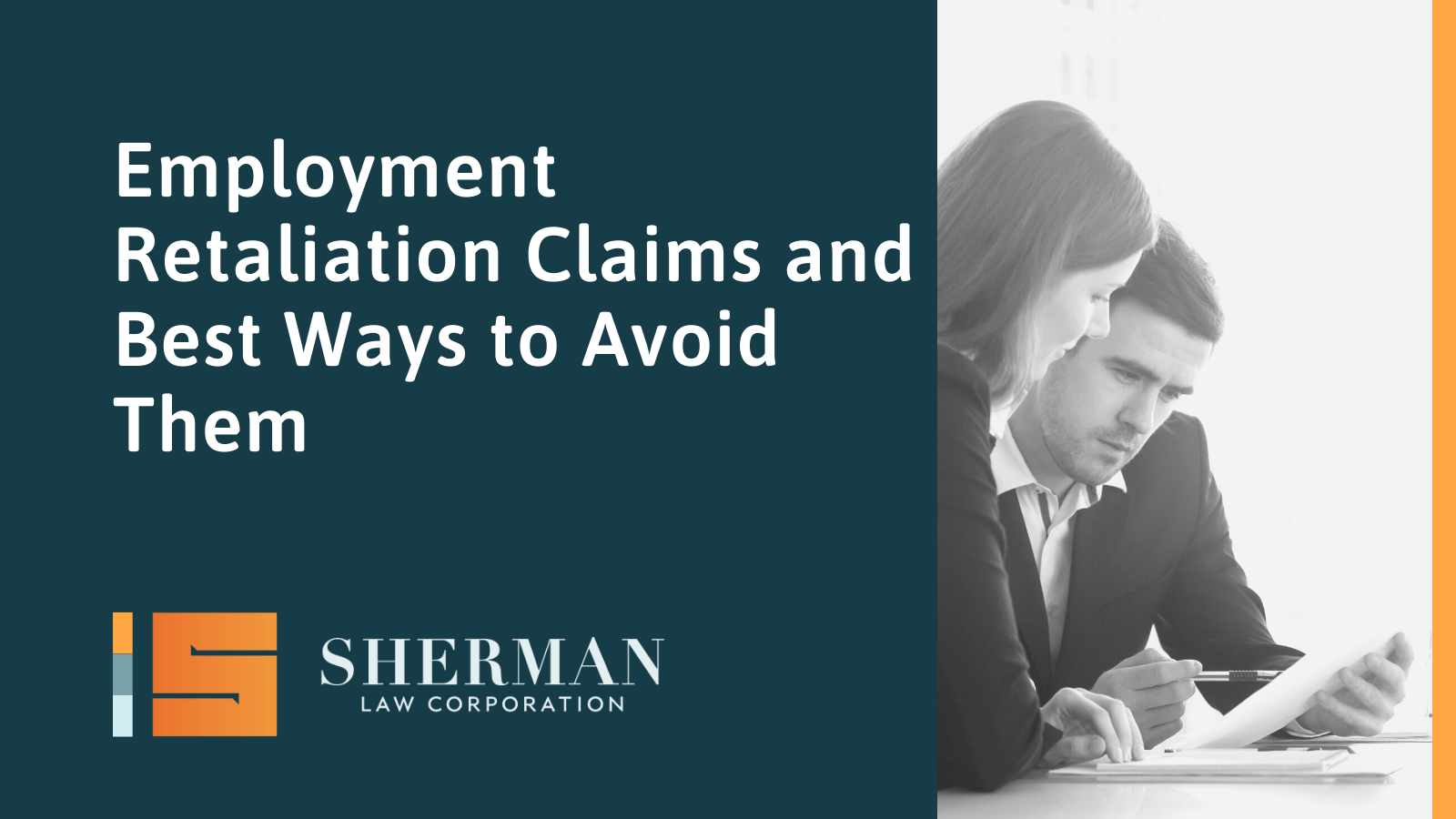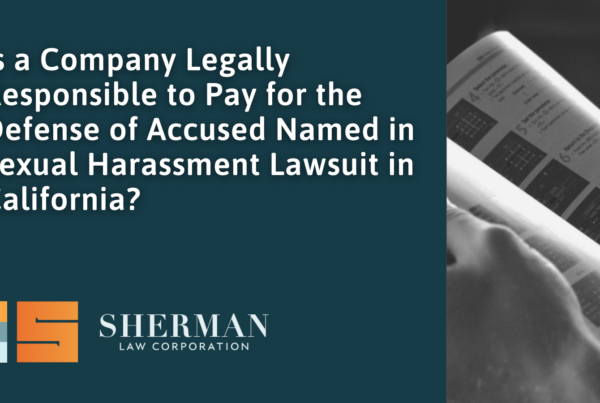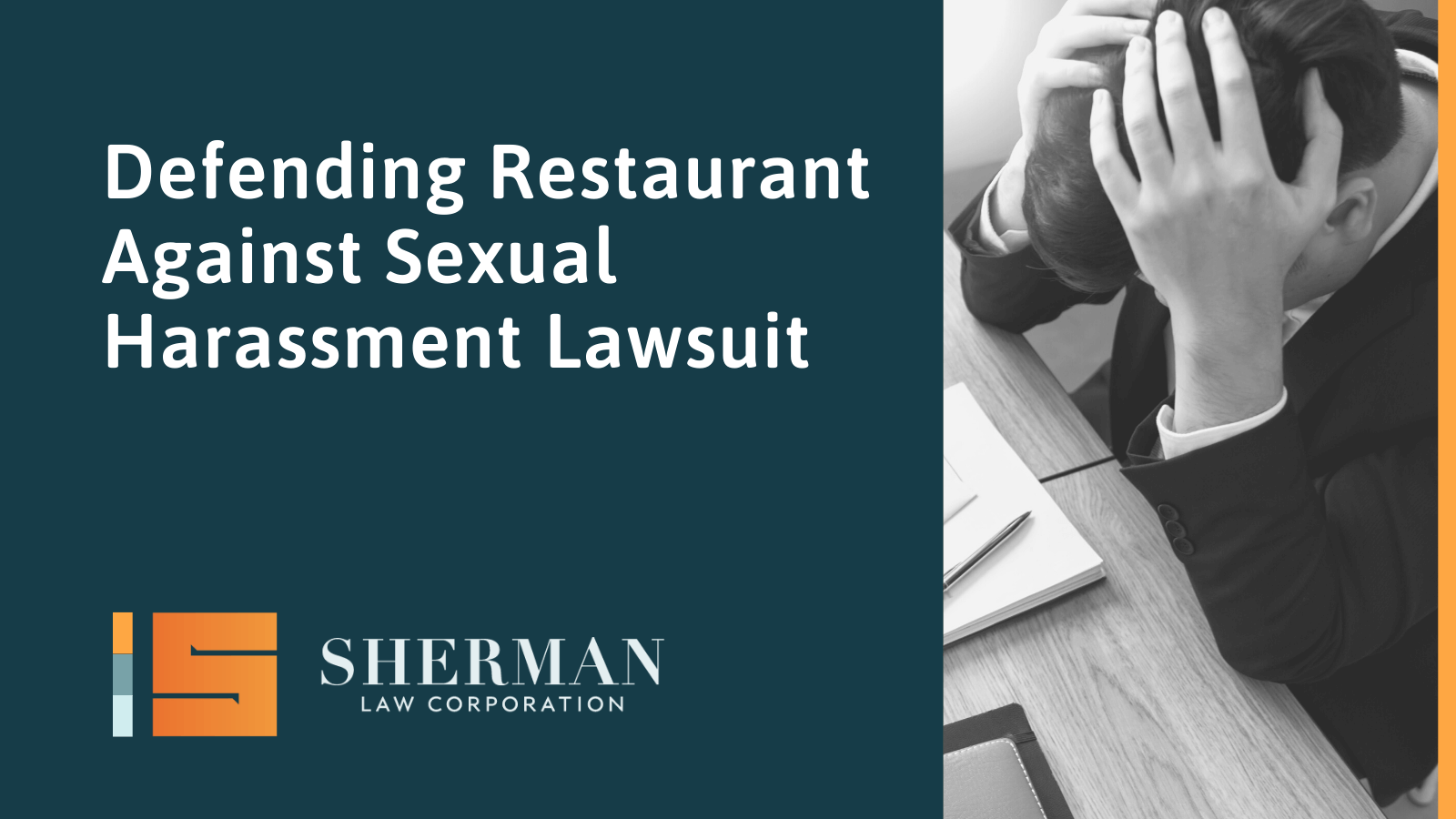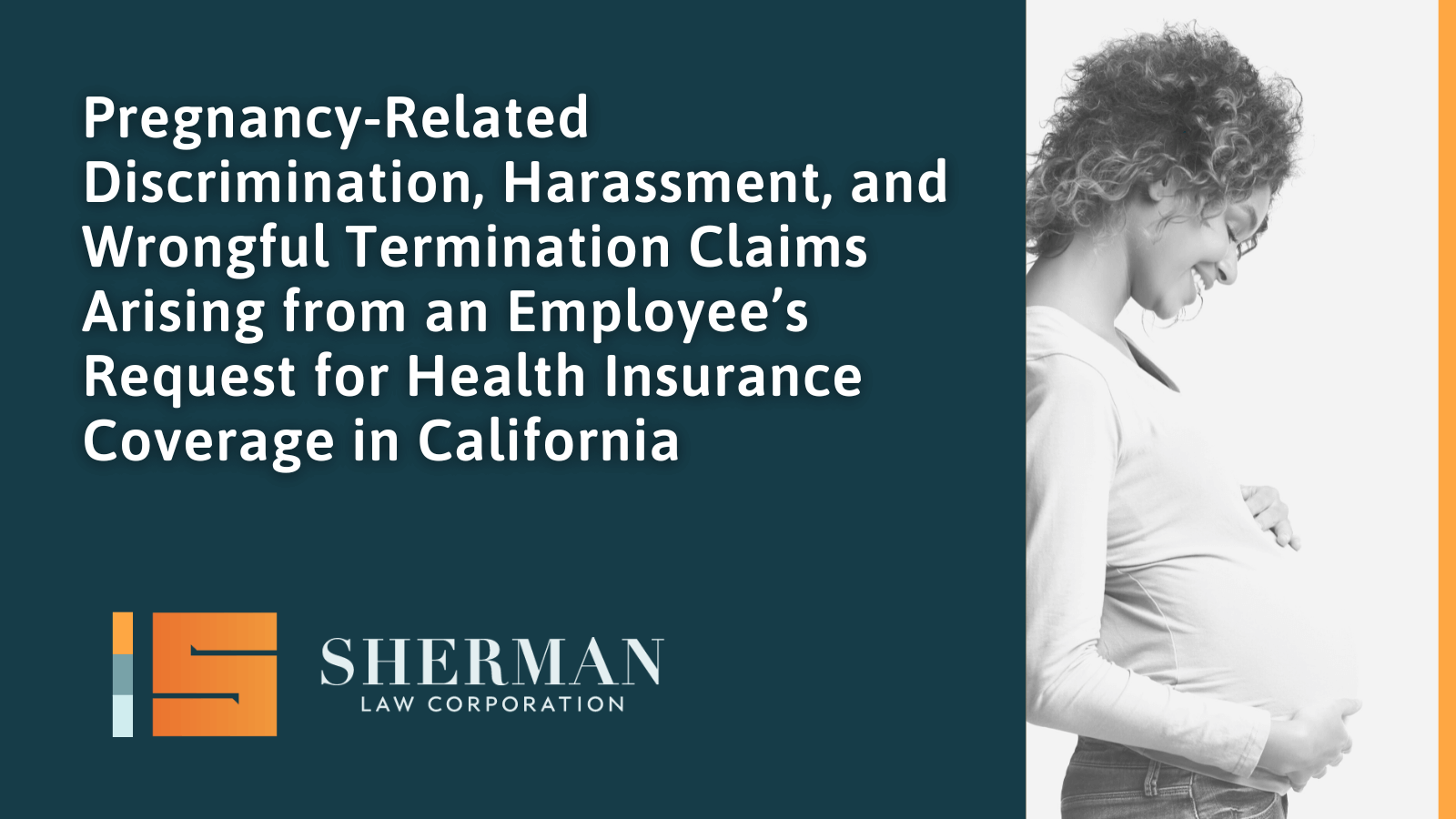
Employment retaliation claims can arise under a variety of California laws, posing significant challenges for employers.
At Sherman Law Corporation, we understand that employment disputes can escalate into complex and expensive lawsuits, often based on unfounded claims. This is why our team of highly experienced attorneys, led by Lisa Sherman, our seasoned advocate with a reliable track record of positive results, is committed to maintaining clear and constant communication with our clients and their employees throughout each case.
Read through this blog as we discuss the critical statutes regarding employment in California and offer guidance on avoiding such employment retaliation claims effectively.
Key California Statutes Governing Employment Retaliation
Retaliation claims in the workplace are taken very seriously under California law. The following sections outline key statutes that provide protections against employment retaliation.
1. Unlawful Employment Retaliation Under California’s Fair Employment and Housing Act (“FEHA”)
The last report released by the Department of Fair Employment and Housing on filings with the state agency was in 2018, which covered discrimination, harassment, and retaliation charges from 2017.
Strikingly, the 2018 report indicated that the largest portion of charges requesting a right-to-sue letter (which permits complainants to file lawsuits) involved claims of age discrimination and retaliation—constituting 30% of the alleged bases.
California Government Code Section 12940(h)
California Government Code section 12940(h) prohibits California employers from taking any “adverse employment actions” against employees because they have complained about or opposed conduct that is prohibited by California’s anti-discrimination statute (e.g., sex, national origin, or age discrimination). Employees are only required to “reasonably” and in “good faith” believe that the alleged conduct is unlawful.
The California Supreme Court has taken a broad view of the term “adverse employment actions.” Employees are protected from “the entire spectrum of employment actions that are reasonably likely to adversely and materially affect an employee’s job performance or opportunity in his or her career.” (Yanowitz v. L’Oreal USA, Inc. (2005) 36 Cal.4th 1028, 1053)
Therefore, “adverse employment actions” may include not only obvious actions such as terminations and demotions but also the following:
- Negative disciplinary write-ups
- Performance reviews
- Harassment
- Changes in duties
- Decreases or increases in hours or workload
- Removal from meetings and/or
- Denial of pay raises, training, or promotional opportunities
2. Whistleblower Retaliation under California Labor Code Section 1102.5.
California Labor Code Section 1102.5 is California’s very broad whistleblower retaliation statute.
Since its enactment in 1984, Section 1102.5 prohibited an employer from retaliating against an employee who does the following:
- Disclosed information to a governmental or law enforcement agency that the employer is violating a statute, rule, or regulation; or
- Refused to participate in an employer activity that would result in a violation of a statute, rule, or regulation.
A few years ago, the statute was amended to extend whistleblower protection to those who complained:
- Internally to “a person with authority over the employee” or to another employee with the authority to “investigate, discover, or correct” the reported violation; or
- Externally to any “public body conducting an investigation, hearing, or inquiry.” Like the FEHA, the statute only requires an employee to have a “reasonable belief” that the employer’s conduct is unlawful.
In 2015, a California appellate court expanded these protections even further. In Cardenas v. Fanaian (2015) 240 Cal.App.4th 1167, the court held that Section 1102.5 also protects employees who disclose information about unlawful activity at work related to a personal matter. In this case, an employee informed the police that she believed someone at work had stolen her wedding ring.
Her accusation proved to be false, and the employer terminated her employment. She sued her employer and prevailed, with the jury awarding her over $100,000 in damages.
3. Workers’ Compensation Retaliation under Labor Code Section 132a
California Labor Code 132a serves as the anti-retaliation provision in the workers’ compensation statute.
This statute prohibits an employer from terminating or “in any manner discriminat[ing]” against an employee because of any of the following reasons:
- They have a workplace injury
- They have filed or are considering filing a workers’ compensation claim, or
- They have received a workers’ compensation reward.
The employer bears the burden of proving that the employee was not singled out or treated differently due to the workplace injury or workers’ compensation claim. An employee who files a Section 132a claim can receive the following:
- Penalties of up to $10,000: The employer might be required to pay the employee a penalty amounting to as much as $10,000.
- Reinstatement: The employee could be reinstated to their previous job position if they were unjustly fired or demoted due to the injury.
- Reimbursement for lost wages and work benefits: The employee may receive compensation for any wages lost during the time they were unable to work, along with other benefits they missed out on due to their injury.
4. Pay Retaliation under Labor Code Section 1197.5
Labor Code Section 1197.5 prohibits employers from retaliating against employees who exercise their rights under California’s Equal Pay Act.
This includes any of the following:
- Disclosing wages
- Discussing the wages of others
- Inquiring about another employee’s wages, or
- Aiding or encouraging any other employee to exercise their rights under California’s Equal Pay Act.
5. Paid Sick Leave Retaliation under Labor Code Section 246.5(c)
Labor Code Section 246.5(c) prohibits an employer from denying an employee the right to any of the following:
- Use accrued sick days
- Attempting to take or taking an adverse employment action against an employee for using paid sick days, or
- File a complaint or oppose any policy or practice prohibited by this law
The law establishes a rebuttable presumption of unlawful retaliation when the employer takes adverse action against the employee within 30 days of engaging in the protected activity.
6. Retaliation for Filing a Wage & Hour Claim under Labor Code Section 98.6
Labor Code Section 98.6 prohibits employers from retaliating, discriminating, or taking adverse actions against an employee for activities such as:
- Exercising any right under the Labor Code
- Filing or participating in a complaint with California’s Division of Labor Standards Enforcement (DLSE)
- Whistleblowing
- Participating in a lawsuit against the employer, or
- Making an oral or written complaint about unpaid wages
Understanding your rights and the complexities of employment law is crucial. Consulting with an experienced employment attorney can help you navigate your legal options, guide you with litigation and alternative dispute resolutions, and potentially secure compensation for any injustices faced.
Tips for Avoiding Retaliation Claims in California
On August 29, 2016, the EEOC issued its final Enforcement Guidance on Retaliation and Related Issues.
While the Guidance addresses retaliation under the federal anti-discrimination statutes, it provides employers with useful tips to avoid claims under all retaliation statutes, including the following:
- Have anti-retaliation policies in your Employee Handbook.
- Regularly train your managers/supervisors on the anti-retaliation laws and policies, as well as on how to spot potential retaliation issues and respond appropriately.
- Ensure you have a written complaint policy and procedure in place so that employees can report their beliefs about unlawful conduct and retaliation.
- While reporting beliefs about unlawful conduct does not give the employee a “free pass,” employers should consider the following when taking adverse action against an employee who engaged in protected activity:
- Timing: Assess the timing between the protected activity and the adverse employment action, as close temporal proximity will be viewed as suspicious.
- Consistency: Ensure you are not treating the employee who engaged in the protected activity more harshly than other employees.
- Basis for Action: Specify the legitimate, non-retaliatory reasons for taking the adverse action and support it with policy and other relevant documentation and testimonial evidence.
- Regularly follow up with the employee in a private setting to ask about and/or discuss any ongoing concerns.
Additionally, we typically recommend for employees to do the following:
- Document everything. Often, employees increase opposition following protected action to goad the employer into taking an adverse employment action against them. No matter how many times the employee complains, investigates, responds, and documents actions taken that have nothing whatsoever to do with the protected conduct.
- Treat the employee with extra kindness and a gracious attitude, as this will be favorably viewed by a jury. While it is very difficult for supervisors to play overly nice to employees trying to set up a retaliation claim, nothing is more gratifying than seeing the look on the employee’s face when the supervisor gives the employee a cake for his/her birthday.
Contact Lisa Sherman to Protect Your Employment Rights Today!
For comprehensive support and to learn more about effectively navigating and preventing retaliation claims, reach out to Lisa Sherman. Contact us at (323) 488-2087 or via email at lisa@sherm-law.com for a free consultation.
Don’t hesitate to get the guidance you need to safeguard your employment rights.




